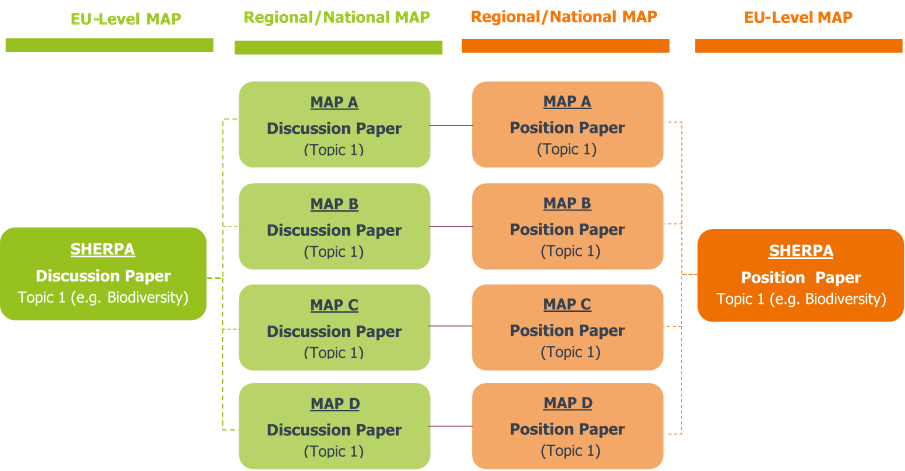Rural interfaces
SHERPA relied on a network of rural interfaces to achieve its overall objectives of gathering relevant knowledge and opinions, contributing to the formulation of recommendations for future policies relevant to rural areas in the European Union.
Rural interfaces are Multi-Actor Platforms (MAPs) implemented across Europe and which act as open forums for exchanges of ideas, for co-learning and co-creating knowledge. Their aim was to engage citizens, researchers and policy-makers at local and EU levels in debates, to jointly develop strategic thinking and practical recommendations for the formulation of modern rural policies and research agendas at European and regional levels. Overall, the project supported the establishment of a number of MAP across the EU:
- Regional and National Multi-Actor Platforms (MAPs) – A total of 41 MAPs in 20 European countries.
- An EU-level Multi-Actor Platform (EU MAP)
- Additional information on how to set up a MAP is provided in this SHERPA document.
Through the implementation of a participative process, the conclusion and recommendations achieved in the MAP are presented in the project position papers. In this respect, the project produced:
- Regional and National MAP Position Paper: Document summarising the opinions of the MAP on a specific topic. The set of position papers from the local MAPs were used in the EU MAP to prepare a single ‘SHERPA position paper’. All documents are available here.
- SHERPA Position Paper: Document summarising the knowledge from previous and ongoing research projects, and synthetising the opinions from the Regional and National MAPs on a specific topic. The topic and document were prepared by the EU-level MAP and discussed at the SHERPA annual conference. All documents are available here.
Discussion papers are intermediate documents that contain the results of past and ongoing research projects (EU and national) to facilitate and trigger the discussions within the MAPs. The process followed for one specific topic is illustrated below.
